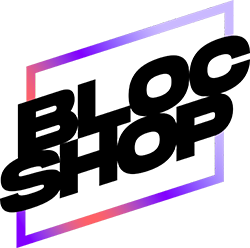This topic has bothered me for a long time. I’m still learning to tame social media and the more I dive into it, the more mixed I am about their impact on the climbing community. The main issues that grab my attention are the self-image, the proposed exercices and the comparative aspect of it.
I would like to start by mentioning that I am not anti-social media. I totally agree that there are good sides to using them and that they are very useful tools in terms of sharing, connectivity and communication. It’s also a great way to introduce people to our sport and encourage people to join our great community. As a motivator and educator to present new ideas and a variety of exercises, social media is certainly useful.
SELF-IMAGE
On the other hand, self-image is a precarious concept on these platforms. They offer a constant comparison to others while the images conveyed are mostly meticulously chosen with the aim of optimizing appearance. It becomes difficult to compare yourself to individuals who only show their success.
When I train or climb I don’t look good, I often fail and it’s difficult to be constantly at my best, but I give my maximum every second. On the other hand, for someone who is new to the sport and potentially seeking approval, seeing all of these people consistently succeed can take a toll on motivation and can challenge their own process.
THE PROPOSED EXERCISES
Regarding the exercise proposal, my opinion is fairly neutral. I find it extremely relevant to be able to draw inspiration from athletes and coaches around the world to increase our repertoire of exercises. However, the point is that any exercise performed must be adapted and progressed adequately according to our abilities and injuries. Exercise form is also a key concept forgotten in this context. Poor exercise form can cause injury in training. A good plan must be adapted to the needs, objectives and progress of each individual. Prescribing exercises to the public through social media can therefore be problematic for those who do not have the knowledge to perform them well.
THE COMPARATIVE ASPECT
This point ties in well with performance and is strongly linked to competition. I’m sure you’ve already had a climbing partner at your level who motivates you when you have a common problem to work. This competition is healthy and pushes you to surpass yourself. However, when you get the chance to compare yourself to the entire community and see that such and such a person does this exercise more than you, and that this climber has done this problem (which you should have done, for example), that’s when that it can be dangerous. This competition can become unhealthy and, in my experience, the athlete questions whether the work performed is sufficient. It becomes difficult to keep the focus on yourself and your ambitions when others are constantly trying to be successful, while they are going through the same process as us (or we assume they are going through the same). In itself, it’s all about perspective, but the perspective offered by online platforms can easily affect us negatively if we’re not careful.
In short, social networks are a captivating tool and are full of resources. Keep in mind that they can have some perverse effects. Be honest with yourself and your climbing / training process. Avoid falling into their traps. If you have any questions regarding this topic or the training, please write to me at dchoq@blocshop.com


